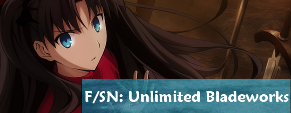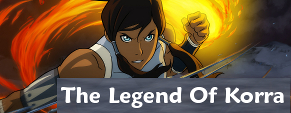Psycho-Pass II – 08 Review
 Oh boy… I don’t think anybody should be able to say something like that with a straight face.
Oh boy… I don’t think anybody should be able to say something like that with a straight face.
I have to say one good thing about this season so far: I have no frigging idea where this is going. And with this episode, things get even more bonkers. What is even going on?! But I guess we still have a couple episodes left where people can sit around and explain that very thing to me and the rest of the audience.
Review:
This series shouldn’t be a Psycho-Pass-series. It’s very difficult to produce a sequel to a series that was more story-driven than character-driven. Especially when that first season completed that arc and the sequel is now forced to come up with a new story. And the only things the sequel can use as a crutch are the characters – which weren’t the focus of the first season. So, the characters aren’t those magnetic personalities that can drive the action and there needs to be A LOT of action because it’s a sequel and you’re not just expecting more of the same, you want something new, something better even hopefully. It’s a very demanding job to create a follow-up to a series like Psycho-Pass’ first series and this second season fails to live up to those demands.
It’s strange to notice just how much of an influence Gen Urobuchi had been on the first season. He had been just the script-writer. I mean, there are a ton of other people who influence the creative direction of such a project but this second season is noticeably different from the first season. And it’s different to a point where you feel like the series is betraying your trust. As a member of the audience you have a certain level of investment. At some point you start to care about the world, the characters and so on if you happen to like a series. And this investment also leads to expectations as well as attempts to “fill in the blanks”. A series can’t cover every little detail of the world but with enough investment the audience begins to imagine what those corners at the edge of the presented experience might be like. When the series continues, it can then surprise or disappoint you depending on how your expectations formed around this imaginary knowledge of the world compare to the new knowledge offered by the story. It’s the thing that drove people to hate Star Wars: Episode I when it explained the Force with midi-chlorians.
At some point, the audience’s investment leads them to the belief that their understanding of the fictional universe is valid in a way that allows them to judge whether a new bit of information coming from the author is “right” or “wrong”. In these scenarios the author isn’t the only one who controls that world anymore. Star Wars is a big example, like I’ve mentioned. Many fans see George Lucas as someone who tarnished the legacy of the original Star Wars movies by altering them – despite the fact that as the creator it should be his right to change his own creations if he wants.
I mean, it actually can even happen before the audience is even involved! Just think of every time someone turns a book into a movie and doesn’t stay faithful to the original. Hell, take Ghost in the Shell as an example: that franchise has three different versions (one is the original manga, the other are the two Oshii-movies and the third is the SAC-series)! So, the notion of absolute consistency is something that the involved creative people need to strive for. Consistency doesn’t come naturally. And the thing with this second series is that it has lost its consistency after getting a new script-writer. The first season was sill this very consistent series that was still very introspective in its goals. But the moment it had become popular and was given this second season, the series’ sense of consistency that not only existed within the series but also within the minds of the audience, this stuff had to be shattered. This second season couldn’t possibly live up to those expectations formed around an understanding of the first series that went beyond the intentions of the first series. Akane wasn’t meant to be this glorious example of a strong female character. The show was simply trying very hard to be dark and mature and so moe-stuff was tossed out of the window. But that fan-perception of Akane as a heroic female figure has led to her becoming a super-cop in this second season. I would argue that Akane’s characterization in this season is simply a visualization of what the audience thought of Akane during the first season.
 And so Kamui has exploited one other BIG problem the Sibyl-System faces: Illegal immigrants. Because of course Kamui knows how to smuggle foreigners into the country. And foreigners are naturally very interested in tearing down the corrupt Sibyl-System!
And so Kamui has exploited one other BIG problem the Sibyl-System faces: Illegal immigrants. Because of course Kamui knows how to smuggle foreigners into the country. And foreigners are naturally very interested in tearing down the corrupt Sibyl-System!
At the same time, though, this season doesn’t feel like a sequel. And it isn’t really just different either; it almost feels like the setting got rebooted at the start of this season. The tone and general themes of this new season just continue to not align with the stuff the first season had done. This season is continually doing stuff that references the first season but does something very different with it and it doesn’t really acknowledge the first season as well. At least, that’s how it feels. There are some characters running around that were also in the first season, basic world-building from the first season has stayed but overall, it just feels like we’re watching the same world in a different light. This isn’t the Psycho-Pass, I learned to like after finishing the first season. And I would have far fewer problems with this season if it hadn’t been attached to the first season in this sequel-like way. One of the biggest problems of this second season is how inconsistent it feels as a sequel. It takes core-concepts of the first season and just changes them suddenly or reuses them in a utilitarian manner. Stuff like Kamui not having a Psycho-Pass seems just like a cheap “It has to be bigger!”-sequel idea in the way it’s basically referencing the always low Psycho-Pass-number of Makishima. At the same time, though, it never feels like the confrontation with Makishima in the past influences the old characters in a way that would give you a sense of continuity. But the real problems are those inconsistencies that actually go against what has been established in the first season.
The Sybil-System is evil. This season may still act like it’s smart but what’s really going on is a battle between good and evil now. The only exception is that you have villains who want to do good (Kamui) and villains who want to do evil (Sybil-System). But where the first season tried to establish some shades of grey that ultimately led to the confrontation between Akane and Kogami, this season is pretty hamfisted in telling the audience who the good guys are and who the bad guys are. And here’s where the inconsistencies come into play! This episode introduces a notion that actually goes against the presented ideas of the first season. One of the biggest revelations of this episode is that the Sybil-System is led by evil people. The chief of the MWPSB isn’t an android who expresses the will of a hivemind of exceptional sociopaths and deviants, no, the leader of the MWPSB is an evil scientist-lady whose son, Togane, is equally evil. But that’s such a hamfisted, not-thought-through idea to create a dramatic plottwist! After all, the whole struggle of the first season had been the question whether the Sybil-System is good or bad. It was always clear that the Sybil-System was dystopian in nature but it did have benefits and that’s why Akane chose to help the Sybil-System in the end. As long as the system was trying to do good, its drawbacks were necessary sacrifices to ensure that everyone benefited from it. But that’s a silly argument now since this episode has declared the Sybil-System to be completely evil.
The script-writers of this season are kinda obsessed with personalizing stuff. All of a sudden Akane gets a grandmother who inspires her and there are throwaway scenes like when the blond science-lady recites the hacker-guy’s background. This season really needs to give everyone a background story and turn them into relatable characters. And they even go so far as to turn the Sybil-System into a person as well basically. It’s ridiculous how this second season is suggesting that when Akane learned the truth about the Sybil-System in the first season, she just learned the “truth”, meaning just bits and pieces of it and not the whole story. All of a sudden the Sybil-System is a corrupt government and Kamui is suddenly trying to uncover a government-conspiracy with ludicrous crimes. Instead of exploring how different the Sybil-System is compared to democracy, they just make the Sybil-System more similar to that by using familiar government-as-the-villain-tropes. Maybe Mika will turn into Akane’s “Deep Throat” who secretly tells her “what’s really going on”. The way this season handles characterization is very exposition-heavy. It’s a very conventional approach to basically funnel these characterizations through infodumps that explain these characters. At the same time, though, I always feel that it just shows how the story has no confidence in its own presentation of the characters and needs to spell it out for the audience – because otherwise they wouldn’t get it, of course!
You can really cut out a lot of exposition from this second season and the whole thing would still be fine! For example, that ludicrous comment that Togane had the highest Psycho-Pass-number ever measured was just a waste of time! It’s a detail that doesn’t offer any new insight and it doesn’t change the audience’s perspective of his character at all. In fact, until Mika had uncovered his dirty little secret he was more or less just doing his job. So, the revelation of Mika’s discovery would’ve been a surprise – except we had already gotten a scene where the chief basically said to Akane “He’s REALLY evil, GET IT?!”. The series hadn’t even given the audience the chance to discover this character – it just explained the character without any fanfare. And then when it was time to reveal something about the character, the audience wasn’t surprised, it just nodded in understanding and was like “Yeah, I know, he’s evil… have you checked his Psycho-Pass recently? Oh yeah, he’s evil, believe me…”. That’s not how you handle characterization!
 Of course, Togane is the creepy kind of evil son who has an evil mother!
Of course, Togane is the creepy kind of evil son who has an evil mother!
Overall, there isn’t a lot of plot in this episode because it’s a huge infodump instead. It’s like someone turned on a switch and now everyone is able to get the whole story. This season started out with the mystery of Kamui and the mission to capture him. It was clear that he had a plan and for obvious dramatic reasons nobody has been able to stop him from achieving his goals. The thing you need with mystery-stories is control. There needs to be this calculated pacing of revelations, plottwists, discoveries and character-interactions. Having a scene where a character basically has a big monologue about what Kamui’s deal is doesn’t really seem that calculated.
First of all: Holy Shit! That’s a TON of story to throw at the audience in one episode! It was complicated shit as well and I don’t mean that in a good sense, because it wasn’t very deep or complex. It’s just the sheer quantity of shit that gets thrown around! There’s SO much of it! And a lot of it is completely new as well. The whole conspiracy-angle and the origin-story of the Sybil-System that’s slowly coming into focus are both big story-revelations. This episode just rushed through them, though. I can’t tell you exactly what Akane and her team don’t know that Mika knows. It doesn’t help that we have multiple people in different locations, independent of each other explaining what’s going on and Mika is somehow finding more stuff that adds to something other characters explain but they don’t know and continue with a completely different piece of information… It’s more frustrating than anything else.
Also, Kamui is basically Frankenstein’s Monster. They used a bunch of dead people to construct this superhuman being and yeah, the way that doctor phrases it, I assume he’s supposed to be superhuman. It’s sci-fi-bullshit that doesn’t really make sense but whatever. But then the whole “I’m a victim of a conspiracy.”-thingy starts and naturally we’ve never heard of that thingy before. And now Kamui is out for revenge… while also forming a cult that will lead a revolution – because those are always fun, right?
As for Mika… Well, at least we can see her now becoming the victim she was always destined to be considering how stupid her characterization has been until now. As for the way she has uncovered that the Sybil-System is evil… I actually don’t care. I’ve already explained why I don’t like it and it just doesn’t seem very complex. It complicates things that Akane’s superiors and one of her enforcers are VERY evil while she also has to catch some insane dude who wants to tear down society but there’s no purpose and it has no depth. It’s just there for drama and for the sake of having a plottwist. It does the job but it’s hardly anything awe-inspiring.
It isn’t a disappointing episode on its own terms. Independent of the first season this is an okay way to usher in the finale of this series. This episode reveals what’s really going on with Kamui and surprisingly also what’s really going on with the Sybil-System. It isn’t good how it doesn’t feel consistent with what the first season was trying to do and it doesn’t help that the changes this episode introduces feel more like intrusive annoyances than reasonable additions to the setting. Also, it doesn’t help that the episode is just dropping one info-dump after another on the audience without keeping up a good pacing throughout the episode.
Episode-Rating: 6.0/10
Random Thoughts:
- The transition between the doctor and Kamui is a bit too fluid from a writing-perspective. I get it that the doctor is basically telling Kamui’s story but that scene made it look like Saiga was actually talking to Kamui in a way. There’s no need to get this metaphorical and surreal with the presentation of this dialogue. It’s a neat idea but I don’t feel like it added a lot to the scene.
- So, Kamui actually is supposed to have multiple personalities and that’s why he’s running around with those holograms who all behave differently? But whenever we see the true Kamui he never actually seems the unhinged type of crazy you would associate with that problem. And I assume this is the kind of sci-fi-bullshit where mushing together a bunch of brains actually gives him the intelligence of all the used brains combined.
- It was laughable that Mika’s solution to her Psycho-Pass-problems has been to write a complaint to her boss’ superior.
- So… corrupt politicians are at fault for the implementation of the Sybil-System? Also evil science-people because scientists can only ever be either useless egghads or mad villains.
Posted on November 29, 2014, in Anime, Psycho Pass II, Reviews and tagged Anime, Psycho Pass, Psycho Pass II, Psycho-Pass 2, reviews. Bookmark the permalink. 8 Comments.


















I honestly admire how you can write around 3,000 words without complaining x:
LikeLike
Well, my response to this episode was mostly negative, mind you, for the reasons I outlined. But I would like to think that I’m criticizing the episode more instead of just complaining about it, the difference being that I delved into why I didn’t like this episode so much.
And even removed from the context of the first Psycho-Pass-series this wouldn’t have been a great episode, it would’ve been an okay one at least, though. But the referential context to the first season does raise some extra issues that shouldn’t be present in a sequel.
LikeLike
This episode was so exposition heavy that I am even more confused to as I was before. Kamui is a frankenstein monster, mad scientists made him and Togane, one of the mad scientists is part of Sibyl, Sibyl wants to kill off its own Inspectors, there was a rival system to Sibyl that was undermined and destroyed by…someone and it caused Kamui’s plane to crash… I just… don’t even… what? Is this an episode of Lost? This episode only served to make the story more convoluted with lots of unnecessary revelations.
You are right on the mark about the suddenly new characterization of Sibyl. Season 1 made it very clear that Sibyl is amoral and cares for nothing besides its own evolution and maintaining its perfect order, Season 2!Sibyl is a corrupt government, in league with mad scientists, who is leading people to their ruin because it amuses them. Before, I mused that Sibyl was trying to wipe out its own police force for…some reason, but in this episode, that bizarre theory was unambiguously confirmed! Why would Sibyl do something so absurd as to kill off the very people whom enforce Sibyl’s authority? Even worse, these people are LOYAL to Sibyl, and Akane (a person they apparently want to kill now) is loyal even knowing Sibyl’s true form!
Oh Mika… you poor, poor fool. You conduct a private investigation HIGHLY relevant to your co-workers and immediate superior but rather than tell anyone about it (a good idea, just for your own safety), you instead try to blame the setbacks of the investigation (which you never help with) on your boss and try to get her fired behind her back. Mika is such a bizarre character. The most perplexing thing about her is that even though she is an Inspector, only outranked by Akane, she literally does nothing to contribute to the team. She is second in command but is given no responsibilities or clear role. She spends all of her time trying to undermine her boss and team’s investigation. Everyone on the team thinks she’s an incompetent twat but Akane does nothing to try to reign her in. It’s as though she’s not a member of the team at all and Akane isn’t actually her boss. The show seems to want to frame her as well-meaning but naive and misguided. The truth is, she has zero redeeming qualities and nothing that would make her fate have any impact. Are we supposed to think she’s a victim? Maybe of bad writing.
I hate to say it but I think Season 2 has jumped the shark.
LikeLike
“This episode only served to make the story more convoluted with lots of unnecessary revelations.”
Kamui as a character really is a genuine “jumping the shark”-character. Psycho-Pass-Scanners don’t even register his presence and he’s able to brainwash people into becoming like Makishima who have always a low Psycho-Pass no matter what they do.
The rest, though… It’s really just the origin-story of the Sybil-System. And it gets treated like a character that we need to relate to which makes it “necessary” to give it some backstory.
This second season doesn’t want to leave anything to the audience’s imagination. If it talks about something, there WILL be an infodump accompanying it.
“Why would Sibyl do something so absurd as to kill off the very people whom enforce Sibyl’s authority? Even worse, these people are LOYAL to Sibyl, and Akane (a person they apparently want to kill now) is loyal even knowing Sibyl’s true form!”
Yeah, you mentioned that and I was sceptical for that very reason. And for all those revelations, I still don’t know WHY the Sybil-System is SO evil. It just… is, apparently. Right now it’s really just this dumb “being evil for the sake of being evil”-thingy.
“The show seems to want to frame her as well-meaning but naive and misguided.”
I feel like the idea was that Mika would serve as a rival for Akane and would therefore create drama within Akane’s squad as well. Mika would be the stuck-up “go by the book”-gal while Akane was a “cowboy-cop” in the way she interacted with the Enforcers and generally found “unorthodox” solutions for problems.
As you’ve mentioned, the writing doesn’t really deliver in that regard. Mika just seems incompetent and barely contributes anything worthwhile to the story. And I mean, her stupid decision in this episode hadn’t been the first time she had done something stupid in this season. Meanwhile, Akane doesn’t really seem like a rival to Mika because she isn’t really a cowboy-cop, she’s a super-cop. She’s just doing her job and all Mika’s doing is making her job harder. And so far Akane never even had ONE genuine dialogue with Mika.
“I hate to say it but I think Season 2 has jumped the shark.”
Yeah, that’s pretty much it… except some of those revelations actively undermine the drama and story of the first season.
Also, Kamui as Frankenstein’s monster… I like the background-story of that less and less the more I think about it. First of all, the idea behind that they somehow mushed together over a hundred people is insane and unnecessary. There’s no real benefit to that. That Kamui wouldn’t be recognized by Psycho-Pass-Scanners was an unexpected side-effect. And he probably now has the IQ of seven people put together but overall… It just doesn’t go far enough, I feel like. It just feels like sci-fi-bullshit. The whole thing lacks flair! They should’ve gone overboard with it by making Kamui able to shapechange into any of the over 100 people that were used to restore him and the doctor should’ve been like “Yeah, I don’t think he’s still human, actually, he’s… something more…”. The surgery should’ve done by a machine using Quantum physics and other such dramatic Science-stuff instead of just some old man who’s like “Hey, didn’t think it would work… but somehow it did. And I can’t do it again because… reasons.” What’s the point of all the research that went into this project if the whole procedure is basically a “Hieronymus machine” and he’s unable to reproduce the results? If they wanted to do a Frankenstein-monster-story they should’ve done more with it.
LikeLike
I actually liked Kamui before they went overboard on his abilities and now adding an absurd origin story and even more confusing motive. You mention in your review that they were trying to do “it has to be bigger!” in regards to a new antagonist but other shows have managed to create new season villains that help develop the overall story or main character.
Let’s look at a show like Dexter. Each arc villain for the first couple seasons was a killer like Dexter but had a different spin to them. The first was his equally emotionally scarred brother, the second a potential lover, and the third a narcissistic attorney who acted like a best friend. Each villain was a killer for their own reasons and each person represented someone Dexter wished he could be close to but can’t because they don’t have a moral compass like he does. The final message we get from all of them is that Dexter will never have anyone he can truly relate to because the only people he can be honest with are the people he needs to kill. It’s a brilliant character-study that covers half of the entire series. (Dexter later does it’s own shark jumping so I’ll stop there)
If the writers of Psychopass were smart, they would be using Kamui to discuss other flaws of the Sibyl system, tell us more about the world and change the way the main character thinks and feels about the world. So far, they haven’t handled any of these elements with grace.
LikeLike
“in regards to a new antagonist but other shows have managed to create new season villains that help develop the overall story or main character.”
There are three ways to portray a villain effectively, I feel like.
One way is to make the villain the dark reflection of something. You’ve already mentioned Dexter’s first three seasons but another great example for that is the rogue-gallery of Batman. That’s another example where the villain is a dark reflection of what defines the hero. Joker is the expression of chaos where Batman strives for order, Two-Face shows off the duality of justice and injustice, Scarecrow challenges the fears Batman tries to push away by inspiring fear in criminals and so on. You could do the same with worldbuilding. And the idea of redemption that originally was the only motivation for Kamui seemingly would’ve made for a great counterpoint to the Sybil-System where you’re simply just guilty or not guilty.
The other way to get a good villain, though, is to make him an avatar of evil. You could go into primal territory by having villains like in the film Nosferatu (especially the Werner Herzog version from 1979, although the German version is great as well) where the evil nature of the villain is so absolute and dominating that it corrupts the very environment it inhabits. And more than just corrupting this environment, you can see that this evil thrives in this environment. You would go into Horror-territory with that, of course.
The third way is the psychological way where you actually try to treat the villain like a character. You give him a motivation, a goal, a personality and so on – but the more you learn about the character the more intimidating or fearsome he seems. At the same time, he immediately becomes more fascinating, if the characterization is done well. You could even make those characters the protagonist and go for a nuanced story, morally speaking, like with all those “difficult men”-series like Breaking Bad, Mad Men and well, Dexter to some extent, I guess. But you can keep such a character as a villain, too, as Bryan Fuller’s Hannibal-series has demonstrated.
“So far, they haven’t handled any of these elements with grace.”
Yeah, that’s the thing that’s surprising me. I mean, I would have to go over the staff-list again but when I started reviewing the series, I just noted that Gen Urobuchi was gone but I think the series still has the same director and producer. And Gen has a supervising position, although considering that he’s really hot shit in the anime-industry these days, he’ll probably not have a lot of time for something like that. Normally a script-writer isn’t that important when it comes to such projects. The producer and director have a vision and the script-writer just writes the scenes and dialogue. Then the animation animates that… in the worst case the script-writer has to write dialogue for scenes that already got animated or are in the process of being animated. So, usually a script-writer isn’t that influential to change a series to that extent with his absence. And there’s the storyboard-guy to consider as well in that process… so Gen leaving shouldn’t have changed things that much.
But considering how this season is going… I guess, I will have to check those staff-lists again because something has gone wrong here.
LikeLike
The scriptwriter this season is Tow Ubukata, better known for Mardock Scramble.
Yeah, I think that’s plenty of explanation.
LikeLike
Reblogged this on Anime World.
LikeLike